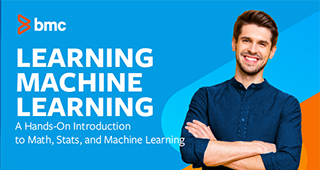Data science is a profession that grew out of a need for enterprises to be able to use all of the customer data they collect to optimize their business model, infrastructure, and ultimately service delivery. The designation, popular in startups and enterprises alike, is made up of one part statistics, one part data analysis, and one part machine learning.
It’s the perfect addition to any DevOps team as it is an agile profession aligning with the overarching goal of DevOps to bring together operations and development toward a common goal. How? It’s because data analysis requires technology and support of information technology teams while creating sleek reports and visualizations of important data.
In this article, we will look at top certifications that will help you increase your chances of being selected for top paying positions in this highly competitive, highly necessary field. If you’re a data scientist working for an enterprise company, looking to increase your knowledge, or if you are an operations manager looking for certifications to support the growth and development of your DevOps team, you want to pay attention to these data science certifications in 2020.
What to expect from data science certifications?
Data science certifications add professional credentialing to your existing knowledge of data science. In an age when higher education is just a few clicks away, some students enroll in data science programs at the bachelor’s or master’s degree level, when they should be pursuing certifications instead.
Why pursue certifications over something like a graduate degree in data science? There’s nothing wrong with degree programs, and in many cases, they are taught by some of the best in the industry. That said, data scientists do not need a higher education degree to perform the duties of the job, and they certainly don’t need a master’s degree or doctoral like the name “scientist” might imply.
Higher education is expensive, and in many cases, what you need to know to become a data scientist would be easier to learn by adding the appropriate certification modules to your existing education to create a foundation for data science, versus trying to do an interdisciplinary transition at the higher education level.
For instance, it would be easier for someone with a degree in psychology to take coursework that allows them to brush up on statistics, learn how to code enterprise databases, and data modeling philosophies than it would be to transition from a BS in psychology to an MS in data science with only one statistics 101 class taken at the bachelor’s level to tie them together.
When you enroll in a data scientist certification, you can expect module opportunities for learning, often online, and then a test that confirms your knowledge of principles related to data science.
A relationships between data science and DevOps
There’s a relationship between DevOps and data science that may be surprising to some. That’s because data science is more often associated with it’s core educational components like statistics, data management, algorithms, and arithmetic rather than DevOps. That said, increasingly data scientists are finding themselves benefiting from principles of DevOps in their own practices.
Data science, as a profession, is beginning to adopt qualities like:
- Working with development
- Continuous improvement
- Continuous integration; and more
Moreover, data scientists work closely with DevOps teams to manage machine learning and AI systems, extract complex data for analysis out of clusters like Hadoop, and run data simulations that result in complex visualizations of data using artificial intelligence programs.
2020 Top data science certifications for professionals
Below are the best certifications in data science for you to pursue in 2020:
1. Certified Analytics Professional
Abbreviated simply as CAP, the Certified Analytics Professional offers something that many in the tech world value, and that is vendor neutrality. It is a practical certification that touts its ability to help data professionals learn the basics and complexities of extracting big data and analyzing it to draw accurate insights from it quickly.
Because data is so important to decision making, business optimization and ultimately, bottom line revenue, it makes sense that enterprise organizations would want to invest in a certification for loyal employees that will make them better at analyzing data, the function at the core of all modeling and statistics. The cost of this self-paced course is up to $695.
2. Cloudera Certified Professional Data Engineer or Data Analyst
Cloudera offers a couple of top-tier data analysis certifications in their certified professional program (CCP). The coursework that comes along with the data analyst certification allows employees to review fundamentals and pass an exam confirming knowledge of the basics of data analytics.
For more advanced employees, a data engineer certification could be a pathway for career development. Those who have already earned the data analyst certification can go on to learn about data engineering and sit for an exam that will result in certification when passed. These courses cost $295 for data analyst certification and $400 for data engineer testing.
3. Data Science Council of America Senior or Principal Data Scientist
Data Science Council of America offers two certifications that are important to this group. The first is Senior Data Scientist and the next Principal Data Scientist. The Senior Data Scientist certification is for those in the middle level of their data science careers. Similarly, a Principal Data Scientist is even further in their career. Both certifications have pre-requisites like five or 10 years of service, respectively. The Principal Data Scientist coursework builds on the Senior Data Scientist. The certifications cost $695 for Senior and $895 for Principle,
Tips for data scientists
In addition to adopting a DevOps mindset that allows integration and alignment between development teams and data scientists toward the goal of making better use of data to make stronger business decisions, data scientists can follow these tips for improvement:
- Focus on speed: Data science is not an exact science but the faster you can turn around your most accurate work, the better. Strike a balance between perfection and timeliness, allowing you to perform your role better.
- Data modeling isn’t the only option: To reduce the time it takes to completion, some data scientists might fall back on their statistical roots. There’s nothing wrong with using a little statistical data science instead of science based on modeling. Robust tools and processes can be built around statistical data science.
- Get your foundation in place: A change in the foundation of a data science project can be costly for enterprise companies. Instead of making an about face mid-project, decide on KPIs in advance and use technology to confirm you’ve done your due diligence.
There are many reasons your enterprise business might want to invest in a data scientist, including:
- Monetizing existing data
- Learning about target market
- Reducing corporate risk
- Achieving better forecasting
- Understanding your objective market position





